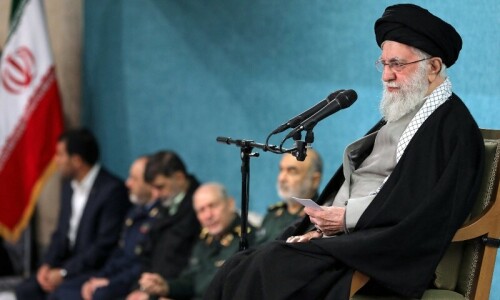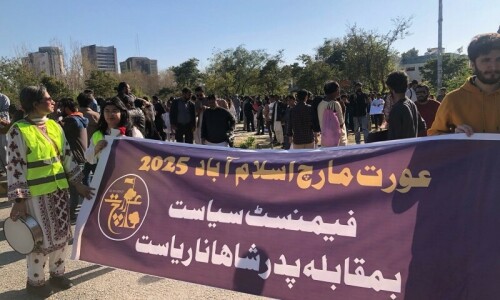HYDERABAD: Speakers at an international moot stressed efficiency in use of water and recommended drip and sprinkler irrigation system, timely water application, lining of watercourses and rainwater harvesting for better soil management and environment.
They said this while delivering presentations at the closing ceremony of the three-day 18th International Congress of Soil Science-2020, carrying the theme ‘Wise Soil Management Ensures Better Environment and Livelihood’ jointly organised by the Soil Science Society of Pakistan (SSSP) and the Sindh Agriculture University (SAU) Tandojam held here on Thursday at the SAU.
Presiding over the event, Sindh Minister for Agriculture Mohammad Ismail Rahu described soil as one of the most important and essential natural resources that was a critical part of successful agriculture.
Highlighting the quality of soil that was deteriorating day by day, he said those challenges should be tackled. He said that scholars and researchers presented recommendations that would help policymakers of both provincial and federal governments to develop strategies to save fertility of land, which was the main source of producing food for the nation.
He appreciated efforts of SAU Vice Chancellor Prof Dr Mujeebuddin Memon for hosting this mega event and providing the platform to stakeholders to share and exchange their ideas and thoughts for a better tomorrow.
“We have important land and coastline, including Indus delta, and different areas of the soil which is being degraded and farmers are facing problems to get maximum per acre yield,” he said and urged farmers to understand the soil for cultivating crops according to seasons.
SAU VC said there were knowledgeable academic and interactive sessions during the three-day symposium and stressed that recommendations must be implemented at the government level to save natural assets.
He said agriculture played a crucial role in bolstering the national economy. Soil had important direct and indirect impact on agriculture productivity and water quality, he added.
The speakers presented various recommendations that included saving huge cost by rationalising chemical fertilisers through bio-fertilisers; monitoring quality control of agriculture inputs; focusing on land degradation factors like salinity, poor quality groundwater, nutrient mining and erosion; developing bio-fertilisers to safeguard environment and soil ecosystem.
Prof Mohammad Kaleem Abbasi, Dr Inayat Rajpar, Dr Murtaza Jamro, Hidayatullah Chhajro, Noor Mohammad Baloch and others also spoke at the moot.
Published in Dawn, February 14th, 2020













































